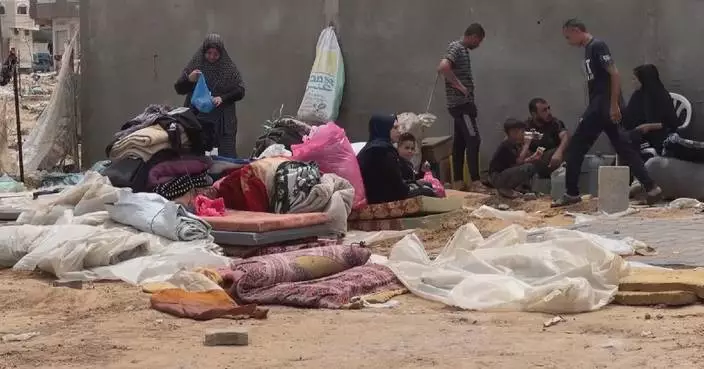A special "mosquito factory" in Rio de Janeiro has joined Brazil's fight with dengue fever, which has infected more than 3.9 million people this year with a death toll of 1,888, a record high in the country's fatalities.
Brazil is fighting the disease by biological means, in which they release mosquitoes deliberately infected with the Wolbachia bacteria into the environment to curb the viral spread of dengue, a mosquito-borne disease.
In the mosquito factory set up by the Health Ministry, mosquitoes infected with the Wolbachia bacteria are bred artificially.
This bacteria, which are found in 60 percent of insects in nature, have been discovered to have the ability to hinder the spread of dengue fever by interfering with the replication process of the dengue virus inside mosquitoes.
The Rio mosquito factory can produce 500 million mosquitoes carrying the Wolbachia bacteria each year. These mosquitoes are later released into the environment where they compete with and eventually replace the dengue virus-carrying mosquitoes through natural reproduction.
The Wolbachia bacteria, which doesn't harm humans or mammals, can spread quickly through mosquito populations via inheritance, reducing the number of vectors carrying viruses like dengue, Zika, and Chikungunya.
"The Wolbachia bacteria-infected mosquito program is not a cure but a preventive means to complement other mosquito control measures. It doesn't solve the current epidemic. Yet if a city is at its peak of dengue fever, it's the optimal time to release Wolbachia-infected mosquitoes. The effects could come out in two years," said Gabriel Sylvestre, head of the World Mosquito Program (WMP) Brazil.
In 2015, Brazil started releasing Wolbachia-infected mosquitoes in Niteroi City of Rio de Janeiro State. By 2021, the city's dengue cases dropped by 70 percent, and by 2023, by 90 percent. In the new dengue outbreak in Brazil this year, Niteroi reported only 1,314 cases.
Currently, Brazil plans to expand the release of Wolbachia-infected mosquitoes, aiming to cover one-third of its population within ten years. And in Rio de Janeiro, guppies are being released into urban water bodies to consume mosquito larvae. These combined efforts, along with mosquito spraying, are expected to effectively control the spread of dengue.
"There are a number of factors for the dengue transmission, so we have adopted different means to curb the mosquito influence at much as we could. We have noticed that our actions have brought the dengue fever epidemic to the manageable level," said Rafael Pinheiro, public health surveillance coordinator of Rio.

Rio mosquito factory joints Brazil's fight with dengue fever

Rio mosquito factory joints Brazil's fight with dengue fever









